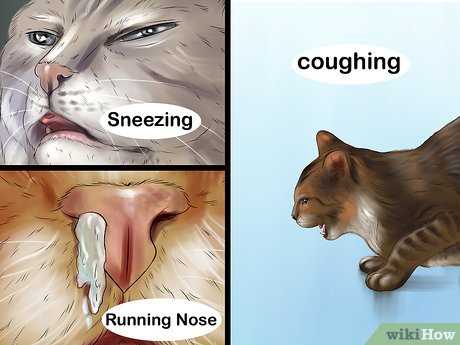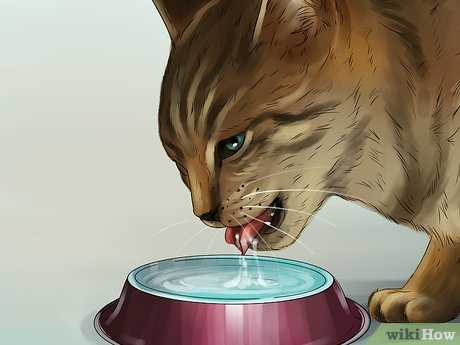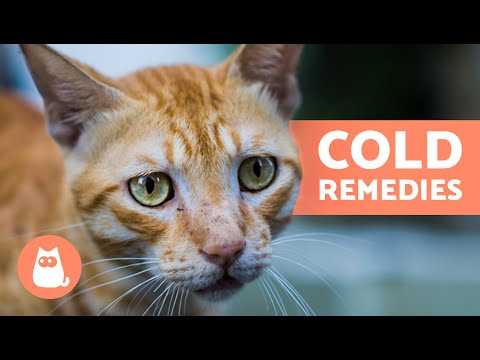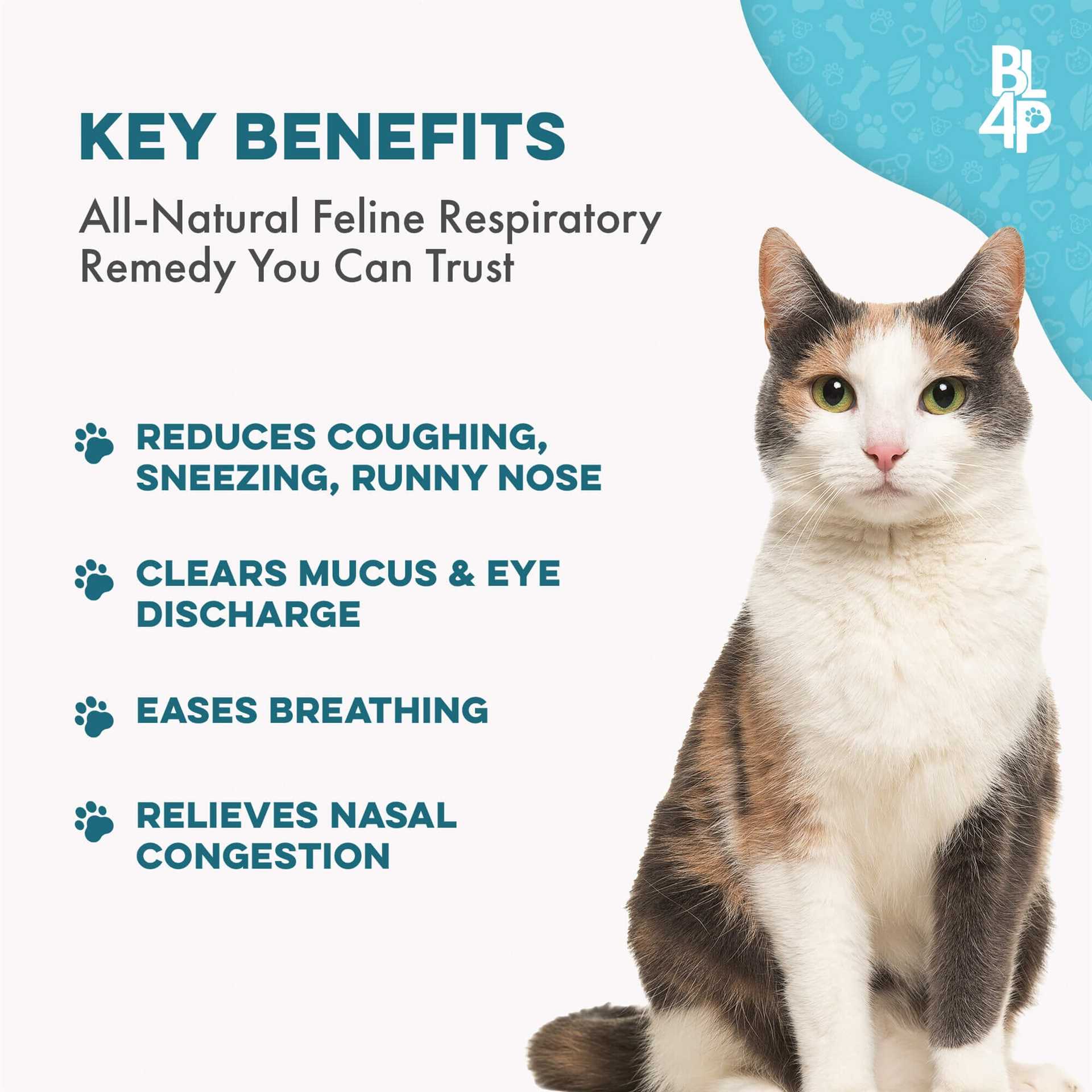

Warm, comforting broth made from chicken or turkey is a delightful treat that can ease discomfort. Serve it lukewarm to encourage sipping, ensuring it’s free from onions and garlic, which are toxic to felines.
Humidifiers can transform a stuffy atmosphere into a soothing environment. Keeping moisture in the air alleviates nasal congestion, helping to ease breathing difficulties. Positioning a humidifier near their resting area can work wonders.
Gentle nose wiping with a damp cloth can clear away crusts and discharge, making it easier to breathe. This simple act not only provides comfort but also helps maintain cleanliness.
Encouraging your furry friend to stay hydrated is paramount. Adding a little water or low-sodium broth to their meals can entice them to drink more, which is critical during recovery. Fresh water should always be available.
Consulting with a veterinarian for appropriate medications is advisable. Some over-the-counter options designed specifically for felines may help alleviate symptoms. Always prioritize safety and professional guidance.
Recognizing Symptoms of a Cat Cold
Pay attention to signs like sneezing, coughing, or nasal discharge. These indicate an upper respiratory infection. Notice changes in appetite; a decreased interest in food often accompanies illness. Monitor energy levels; lethargy can signify discomfort or distress. Observe grooming habits; a lack of self-grooming may indicate that I’m feeling unwell.
Common Symptoms

| Symptom | Description |
|---|---|
| Sneezing | Frequent sneezing episodes may occur. |
| Coughing | Dry coughs or wheezing are possible. |
| Nasal Discharge | Clear or colored mucus may be present. |
| Loss of Appetite | Reluctance to eat favorite treats. |
| Lethargy | Less playfulness, more time sleeping. |
| Fever | Increased body temperature can occur. |
Other Indicators

Keep an eye on breathing patterns; labored breathing or an increase in respiratory rate might indicate a need for a vet visit. Check for watery eyes or swelling around the face; these can also suggest an infection. If a sound like wheezing accompanies any of these symptoms, seeking veterinary advice is advisable.
Safe Home Remedies for Cats with Colds
Warm chicken broth is a comforting option. It helps keep hydration levels up while being appealing to ailing kitties. Ensure it’s low-sodium and free from onions or garlic.
- Steam Therapy: Running a hot shower and allowing your feline to stay in the bathroom can help ease nasal congestion.
- Humidifier: Use a humidifier in the room where your furry friend sleeps to maintain moisture in the air.
- Honey: A small amount of honey can soothe a sore throat. Make sure it’s pure and raw.
Nutrition Considerations
Encourage eating by providing easily digestible food. Warming up wet food can enhance its aroma, making it more enticing. If stomach issues arise, consider the best food for cats with stinky poop to prevent digestive discomfort.
- Chicken or Fish: Boiled chicken or fish can be appealing and nutritious.
- Hydration: Always ensure fresh water is available.
Monitor behavior and adjust remedies accordingly, keeping an eye on any changes that may require a visit to the vet.
When to Consult a Veterinarian
If symptoms persist beyond a couple of days or worsen, a visit to the veterinary clinic is necessary. Signs of dehydration, severe lethargy, or difficulty breathing indicate a need for immediate medical attention.
Key Indicators for Vet Consultation
- Persistent sneezing or nasal discharge lasting more than 72 hours.
- Loss of appetite for more than 24 hours.
- Fever or noticeable weight loss.
- Coughing or wheezing sounds.
- Excessive drooling or difficulty swallowing.
- Behavior changes, such as hiding or aggression.
Pre-Visit Checklist
- Record any visible symptoms and their duration.
- Note any recent changes in diet or environment.
- Gather information about any home remedies used.
- Prepare a list of questions for the veterinarian.
Being proactive is key to ensuring well-being. Regular check-ups also help catch underlying issues early. If in doubt, reaching out to a vet can provide peace of mind and necessary care.
Recommended Over-the-Counter Medications
For felines dealing with respiratory issues, a few over-the-counter options might provide relief. Look for antihistamines like diphenhydramine or chlorpheniramine, which can help manage symptoms such as sneezing and nasal discharge. Always consult your human before administering any medication; they should verify the appropriate dosage based on weight.
Another potential remedy is a decongestant like phenylephrine, but this should be used with caution. Some humans find that using saline nasal drops can assist with nasal congestion. Just a small amount can help clear the airways, making it easier to breathe.
Additionally, consider using a humidifier in the room where I rest. This doesn’t involve medications, but it can create a soothing environment that helps with breathing. Steam from warm showers can also be beneficial; just ensure I’m not exposed directly to hot water.
Always keep an eye on how I respond to any treatment. If symptoms persist or worsen, visiting the vet is the best course of action. My health is the priority, and professional guidance is invaluable.
Importance of Hydration and Nutrition

Hydration plays a key role in recovery. I always make sure to have fresh water available. Wet food can also help maintain fluid intake, so offering it during illness is a good strategy. If my human notices I’m not drinking enough, adding water to my dry food can encourage me to consume more fluids.
Nutrition is equally significant. A balanced diet supports my immune system. High-quality protein sources, like chicken or fish, are beneficial. It’s also wise to choose food enriched with vitamins and minerals. Nutrient-rich options can help me regain strength and fight off the illness.
If I’m feeling under the weather, my appetite might decrease. In this case, trying different flavors or warming up my food can stimulate my interest in eating. Small, frequent meals can also make a difference, ensuring I get the nutrients I need without overwhelming my senses.
Monitoring my weight is crucial, as any significant loss may indicate a need for additional attention. My human should consult a vet if my eating habits change dramatically or if I show signs of dehydration, such as lethargy or dry gums.
Creating a Comfortable Environment for Recovery
Ensure a warm, quiet space where I can rest undisturbed. A cozy blanket or a soft bed will make a big difference in my comfort. Keeping my area away from drafts helps me maintain body heat, which is crucial during recovery.
Temperature Control
Maintain a consistent temperature in my environment. A room that’s too cold can worsen my condition, while excessive heat might cause discomfort. Aim for a cozy, moderate temperature that encourages relaxation.
Air Quality

Fresh air is important, so consider using a humidifier to keep the air moist. This helps with breathing and can ease nasal congestion. Make sure the space is clean and free from dust or strong odors, as these can aggravate my symptoms.
It’s also helpful to have my favorite toys nearby. Familiar scents and objects can provide comfort and distract me from feeling unwell. Lastly, for any cleaning needs in your home, check out the best extended warranty for washing machines to ensure your environment stays tidy and fresh. A clean space supports a speedy recovery!









